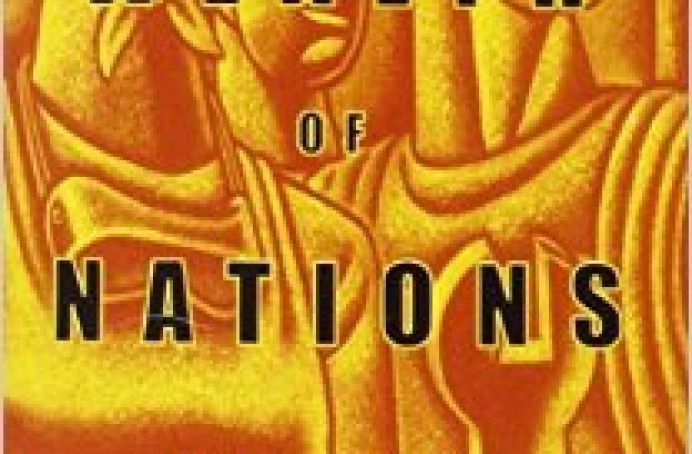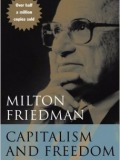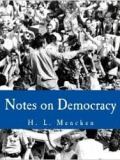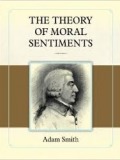Book

The Wealth Of Nations
It is symbolic that Adam Smith’s masterpiece of economic analysis, The Wealth of Nations, was first published in 1776, the same year as the Declaration of Independence.
In his book, Smith fervently extolled the simple yet enlightened notion that individuals are fully capable of setting and regulating prices for their own goods and services. He argued passionately in favor of free trade, yet stood up for the little guy. The Wealth of Nationsprovided the first--and still the most eloquent--integrated description of the workings of a market economy.
The result of Smith’s efforts is a witty, highly readable work of genius filled with prescient theories that form the basis of a thriving capitalist system. This unabridged edition offers the modern reader a fresh look at a timeless and seminal work that revolutionized the way governments and individuals view the creation and dispersion of wealth--and that continues to influence our economy right up to the present day.
In his book, Smith fervently extolled the simple yet enlightened notion that individuals are fully capable of setting and regulating prices for their own goods and services. He argued passionately in favor of free trade, yet stood up for the little guy. The Wealth of Nationsprovided the first--and still the most eloquent--integrated description of the workings of a market economy.
The result of Smith’s efforts is a witty, highly readable work of genius filled with prescient theories that form the basis of a thriving capitalist system. This unabridged edition offers the modern reader a fresh look at a timeless and seminal work that revolutionized the way governments and individuals view the creation and dispersion of wealth--and that continues to influence our economy right up to the present day.
aboutLiberty Portal
Liberty Portal is your gateway for free markets and free thinking. We aggregate open-sourced content to promote and popularize important people and lessons within the liberty movement.
suggested
Milton Friedman
Capitalism And Freedom

Selected by the Times Literary Supplement as one of the "hundred most influential books since the war"
How can we benefit from the promise of government while avoiding the threat it poses to individual freedom? In this classic book, Milton Friedman provides the definitive statement of his immensely influential economic philosophy—one in which competitive capitalism serves as both a device for achieving economic freedom and a necessary condition for political freedom. The result is an accessible text that has sold well over half a million copies in English, has been translated into eighteen languages, and shows every sign of becoming more and more influential as time goes on.
Read moreHow can we benefit from the promise of government while avoiding the threat it poses to individual freedom? In this classic book, Milton Friedman provides the definitive statement of his immensely influential economic philosophy—one in which competitive capitalism serves as both a device for achieving economic freedom and a necessary condition for political freedom. The result is an accessible text that has sold well over half a million copies in English, has been translated into eighteen languages, and shows every sign of becoming more and more influential as time goes on.
H.L. Mencken
Notes on Democracy

Even if you think you have read it all, this book will rattle you to the very core, for it causes a rethinking of the whole structure of the political system. But Mencken also shows that he is more than a cynic, contrary to his reputation. What shines through this treatise is a deep attachment to liberty and a search for some way to protect it from the attack of the mob, which he regards as liberty's greatest enemy.
If there really were a banned book list in the annals of American statescraft, this would surely be on it. It is not for the faint of heart. Read it, and pass it around, as a revolutionary act.
Read moreIf there really were a banned book list in the annals of American statescraft, this would surely be on it. It is not for the faint of heart. Read it, and pass it around, as a revolutionary act.
Adam Smith
The Theory of Moral Sentiments

Man’s moral nature is influenced by sentiment and sympathy. The human ability to sympathize forms the psychological basis of man’s desire to adhere to natural moral laws. Adam Smith explores ideas about individual freedom and self-interest, conscience and virtue, and a classic work of moral philosophy that remains relevant.
Read more


